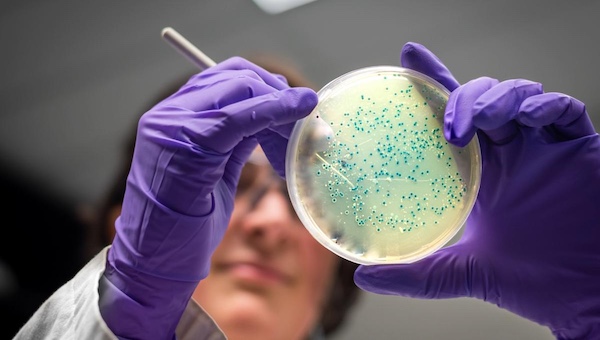
REPRESENTATIONAL IMAGE OF BACTERIAL CULTURE PLATE.
MUSSEL-INSPIRED STICKY BACTERIA BREAKS DOWN TOUGH PLASTIC WASTE FASTER
BY: MRIGAKSHI DIXITORIGINAL SITE: INTERESTING ENGINEERING
Annually, the U.S. generates as much as 40 million tons of plastic waste
Scientists have been actively searching for solutions to tackle the growing problem of plastic waste. Sadly, plastic can take hundreds of years to decompose. As plastic breaks down into smaller pieces, it becomes more difficult to remove and poses a greater risk to wildlife and ecosystems.
Now, Rice University researchers have come up with a solution inspired by mussel.
The researchers harnessed the natural adhesive properties of mussels to develop bioengineered microorganisms that can strongly stick to surfaces.
“Very excitingly, our research holds promise for addressing the growing problem of plastic pollution in the U.S. and across the globe,” said Han Xiao, study leader and an associate professor of chemistry, biosciences, and bioengineering.

Genetically modified bacteria
Annually, the U.S. generates as much as 40 million tons of plastic waste. Polyethylene terephthalate (PET) — a type of plastic — forms the major chunk of this waste (64%). PET may take centuries to decompose.
The researchers developed adhesive bacteria and proteins that can help break down PET more efficiently. Interestingly, this could be a valuable tool in reducing plastic pollution worldwide.
In this development, the researchers used a technique called genetic code expansion to modify bacteria.
They introduced a natural amino acid called 3,4-dihydroxyphenylalanine (DOPA) into the bacteria’s genetic code. DOPA is found in mussels and is responsible for their ability to stick to surfaces.
This method significantly increased the bacteria’s ability to adhere to PET surfaces and made the bacteria more effective at breaking down PET plastic.
“Our approach underscores the innovative utility of genetic code expansion in material and cellular engineering. It can potentially transform bioengineering applications and solve real-world problems,” Xiao said.
